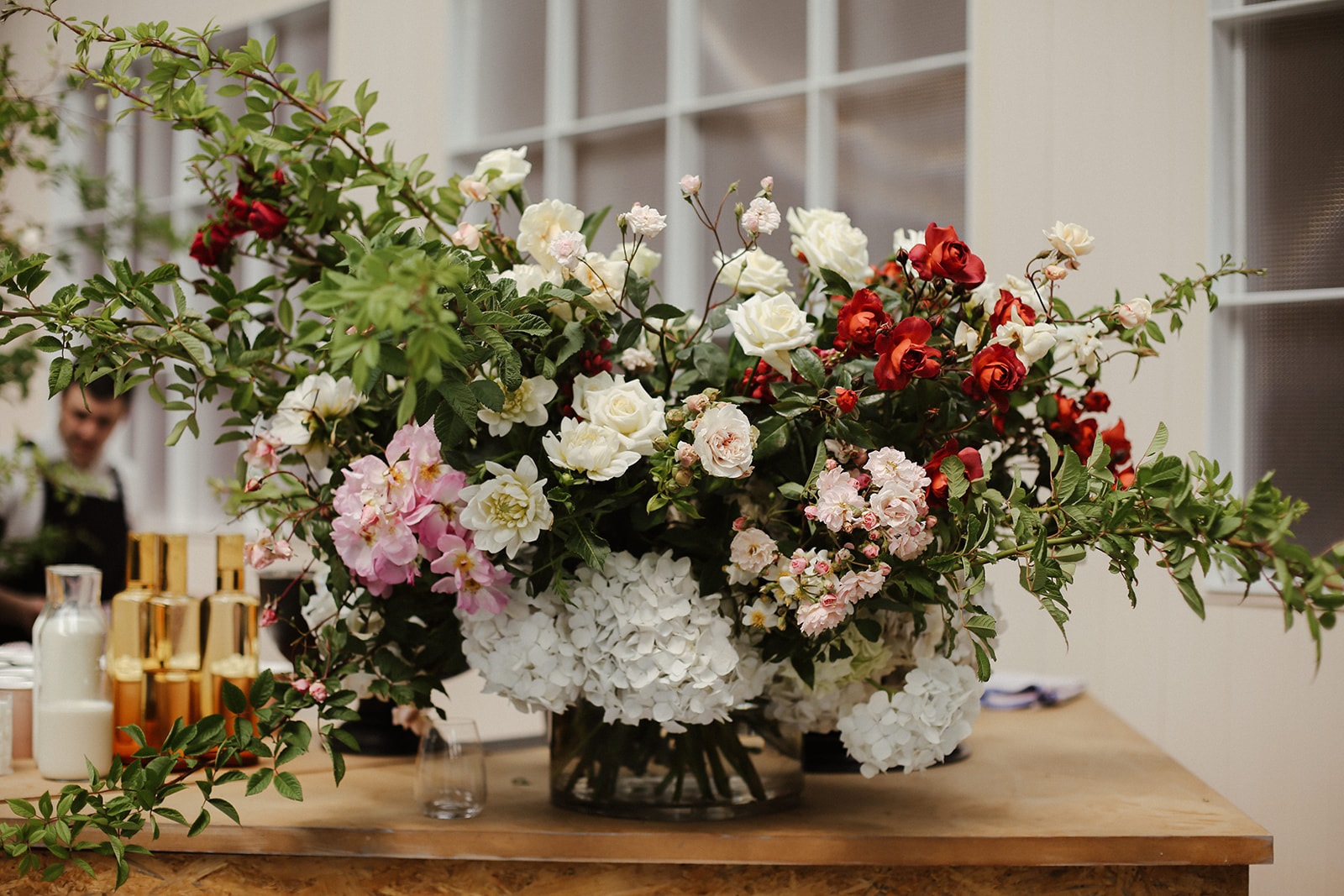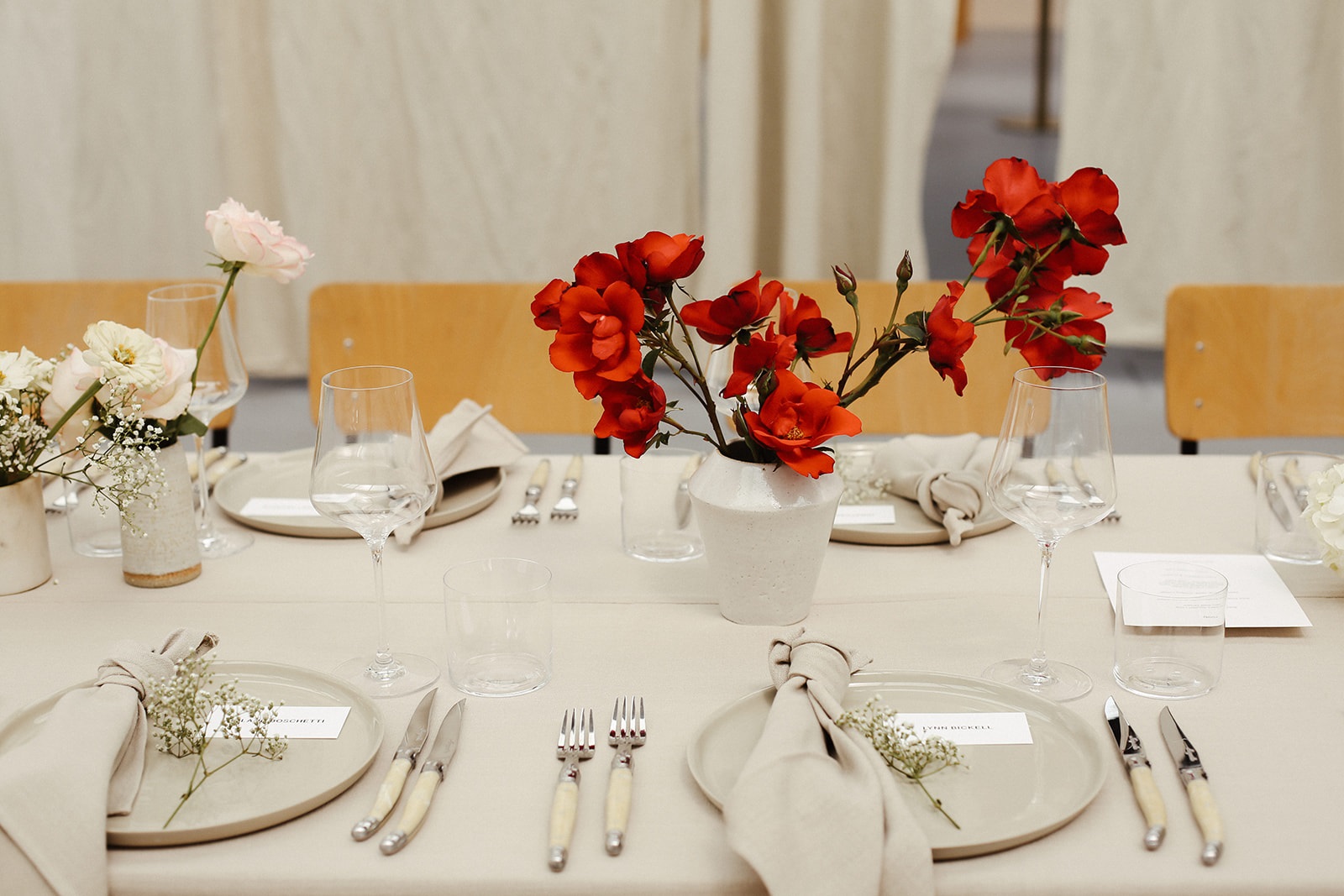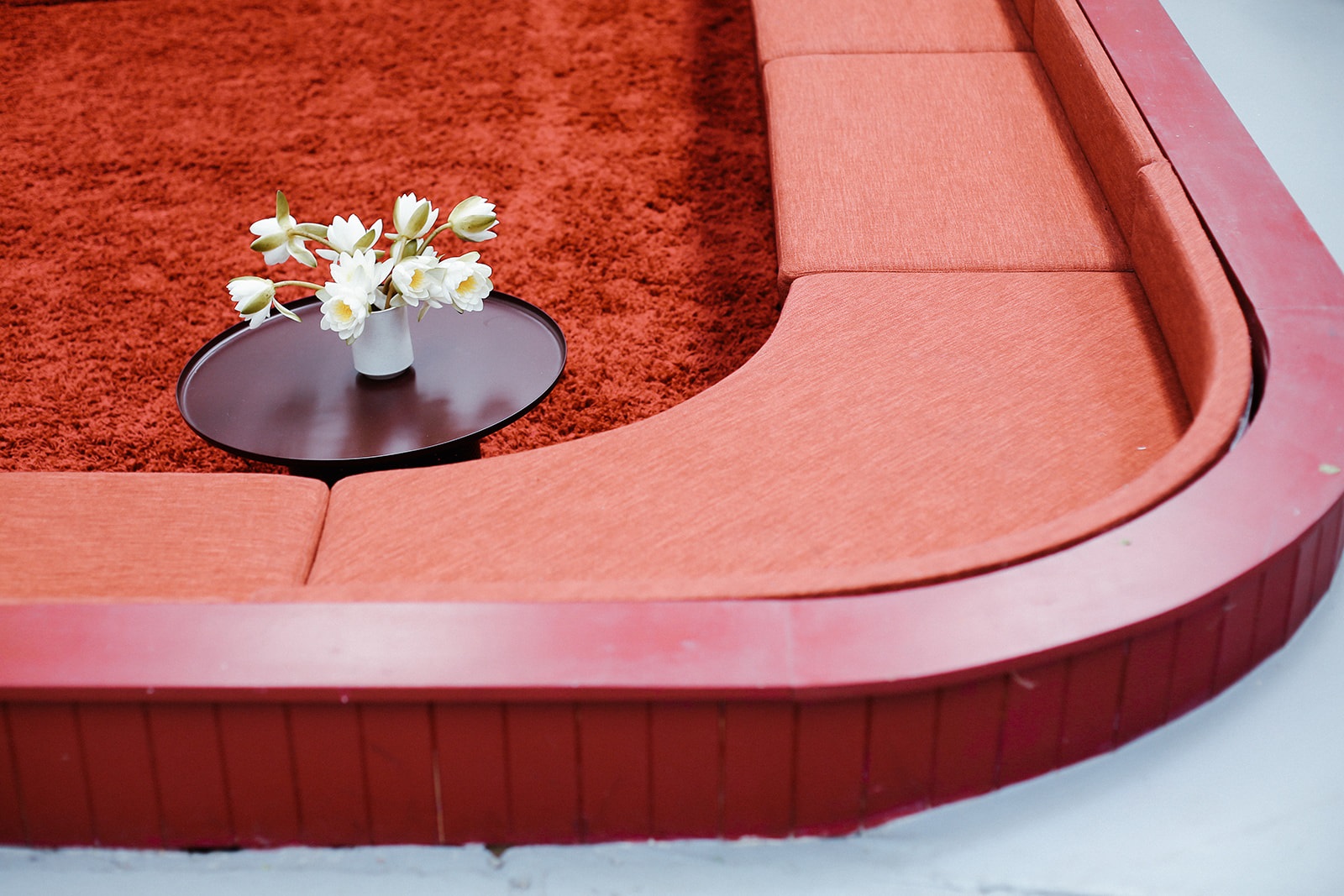Melanie Stapleton, Cecilia Fox, NZ.
After 15 years as one of Australia’s most influential florists, Melanie Stapleton of Cecilia Fox has returned home to New Zealand to start again. Melanie’s business ethos, support for local community, exceptional creative skills and connection with the botanical world make her the perfect role model for a new generation of florists.
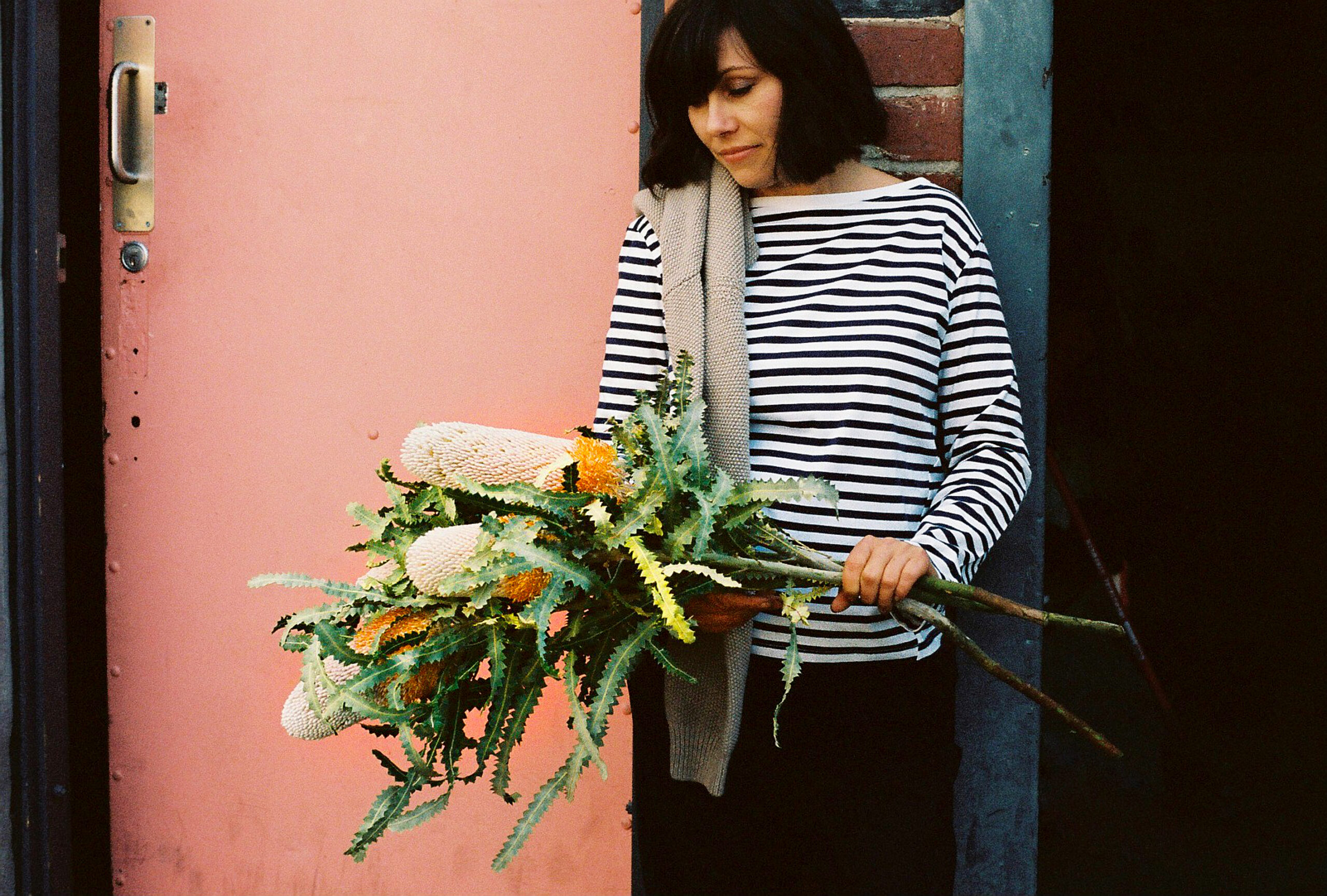
Melanie Stapleton of Cecilia Fox
How did it all start for you?
I was 16, introverted and a little directionless when I started as an apprentice florist in suburban Auckland, New Zealand in the 1990s. It wasn’t so much that I was attracted to floristry, but that floristry welcomed me in and presented me with an orientation for the rest of my life. I learnt my trade the old-fashioned way: sweeping floors, making coffee, washing buckets, processing flowers … repeat. I moved to London in 2001 and had the opportunity to work as a freelancer for some of London’s top event florists. My small-town New Zealand mind was blown. When I moved to Melbourne, Australia, in 2004, the scene felt pretty dull. I worked for many wonderful florists while I studied textiles and this expanded my thinking about floristry as an art form. When creating Cecilia Fox I wanted to start something that I felt truly connected to. A place that I could be myself, creatively and personally. Now in 2021, having returned to New Zealand after 20 years abroad, I feel an immense sense of pride and peace, not just personally, but also for Cecilia Fox.
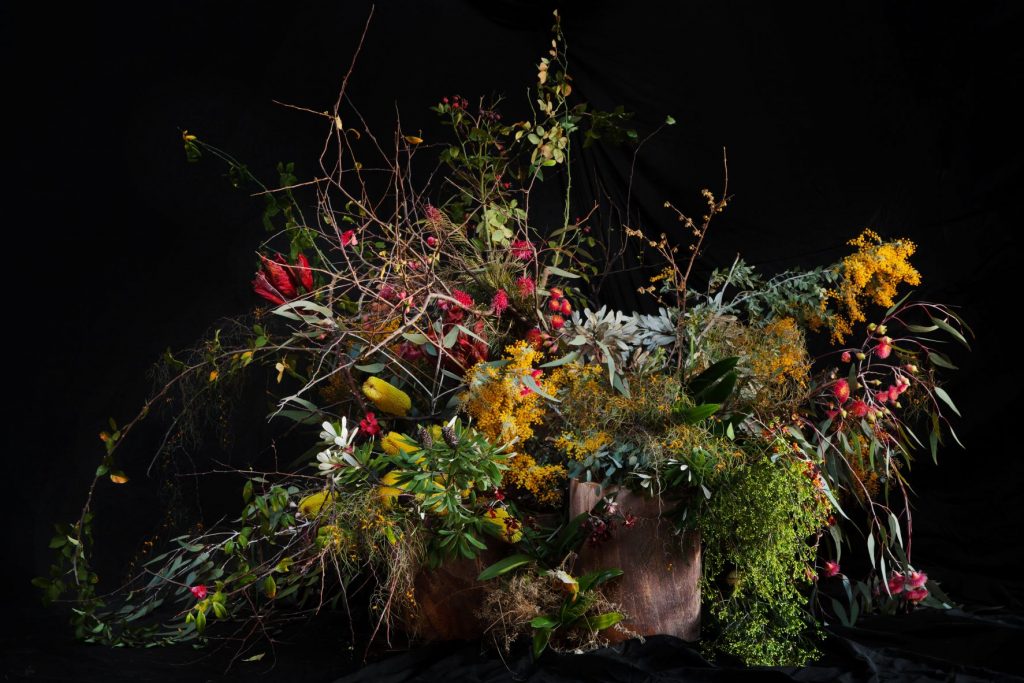
Image: Stephanie Cammarano
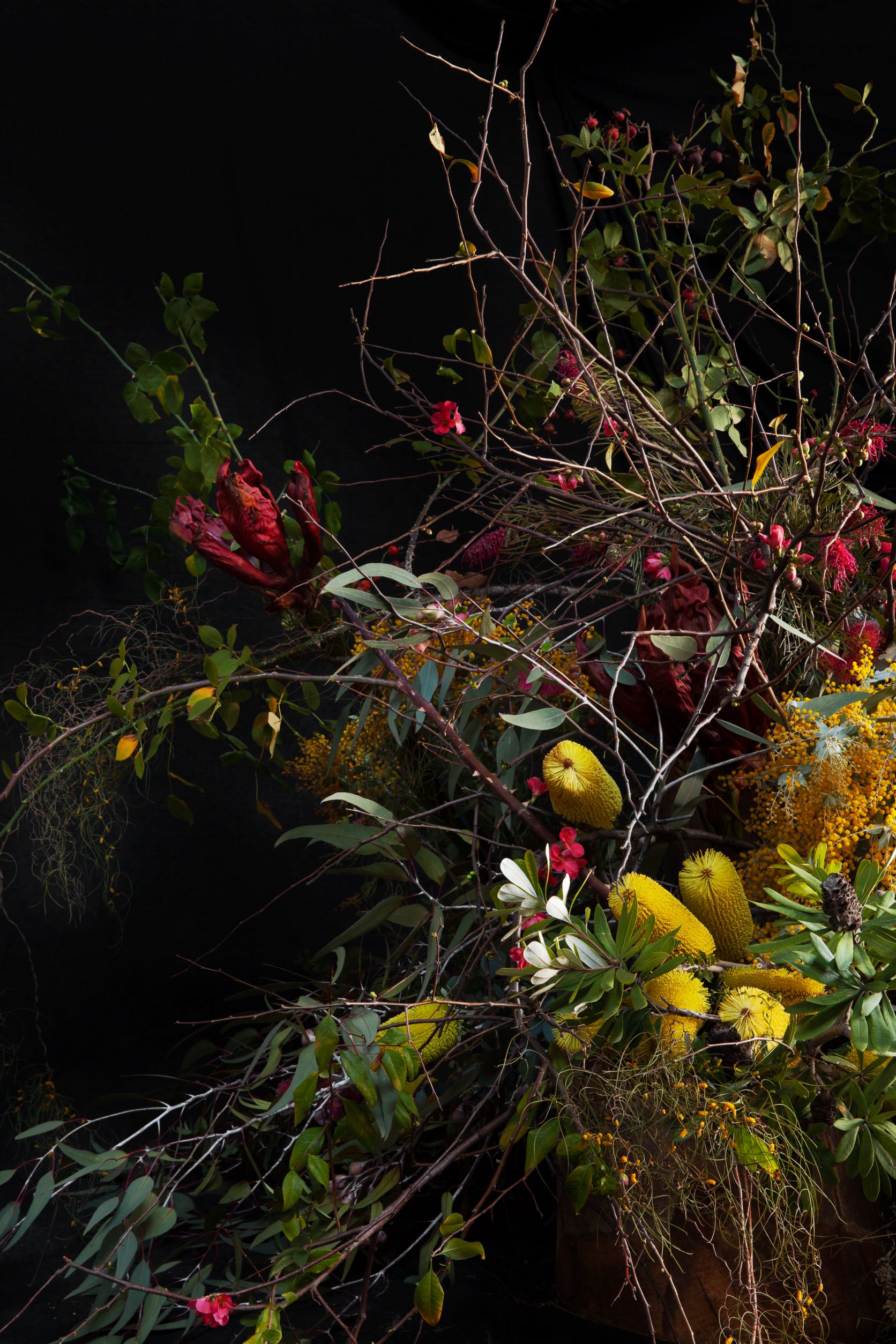
Image: Stephanie Cammarano
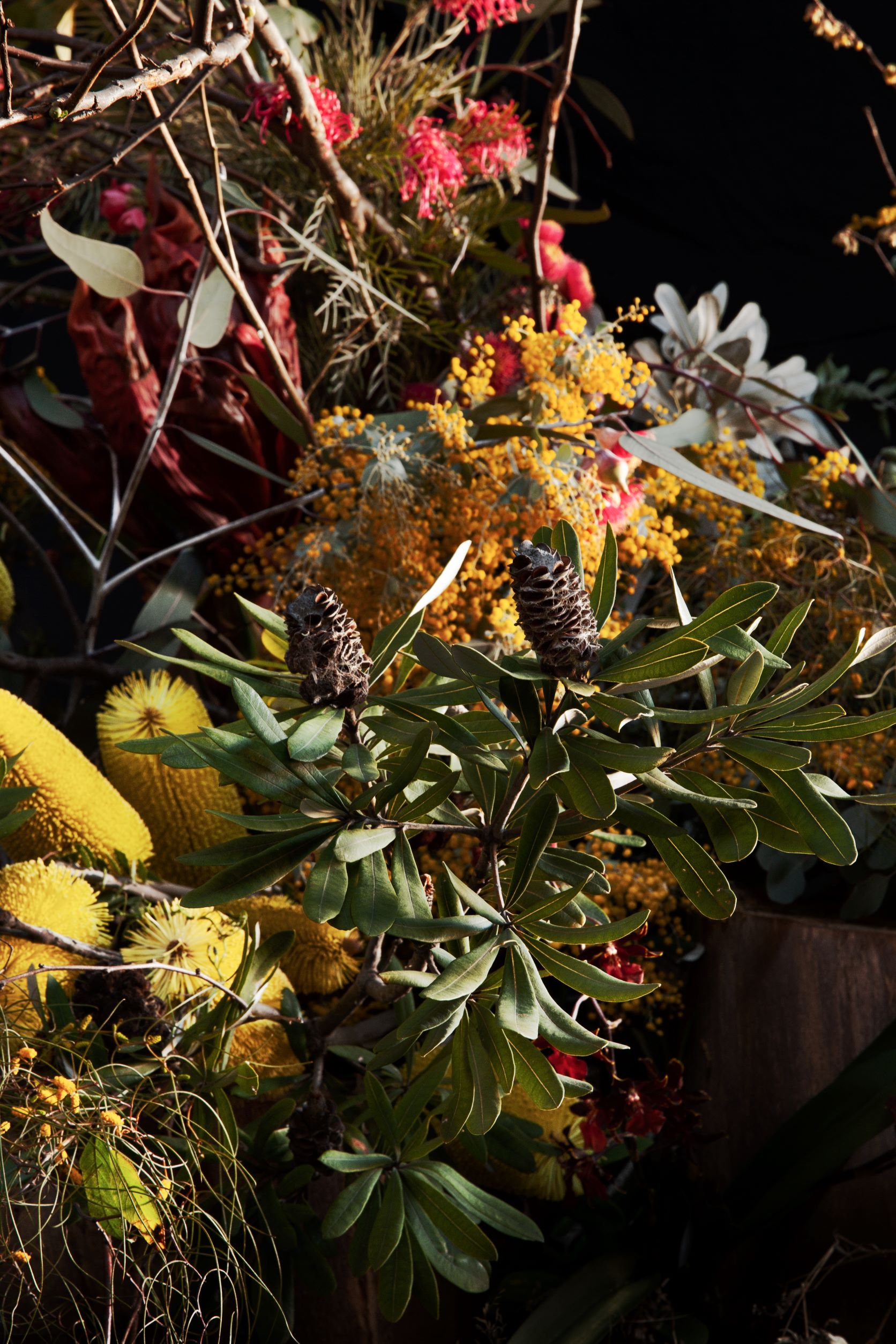
Image: Stephanie Cammarano
What are you currently doing?
COVID has had such a huge impact on Cecilia Fox, my family and me. Like most event florists, our business was all but closed down for the good part of a year. No big events, no weddings. We were so lucky to receive financial assistance from the Australian Government during this time, but it was a huge financial and emotional rollercoaster.
What COVID did give me was the time to take a breath, take stock and wonder what it was that I really wanted for the future of Cecilia Fox. The only thing I can liken the process to is a kind of grief; a loss of all of the things that I thought made me myself. I quickly realised how deeply exhausted I was after decades of long days, early mornings, hard physical labour and all that comes with running a flower business. I had been running close to empty.
I didn’t have the drive to ‘pivot’ or to keep up the ‘hustle’. Instead, I decided to take our family on the adventure of a lifetime. In between lockdowns, we took our work van and our tent and headed to the wilds of Northern Queensland. I stopped responding to emails and I spent every day in nature with my family. As we traversed the country, we processed and grieved for what was happening with COVID, and we imagined a new life. Somewhere on our four-month-long journey, we decided to move to New Zealand. In eight weeks we packed up our warehouse and business, our home of 12 years, jumped the many hurdles that exist when you try to move countries during a global pandemic, and made it to New Zealand.
What brings you the most satisfaction about being a florist?
I get a lot of emails asking me for advice on getting into floristry and my response goes a little like this: “Do you like loading vans? Unloading vans? Did I mention loading vans? Early mornings? Wet shoes?”. Career floristry is no walk in the park. It can be ruthless, challenging and exhausting, but also pure joy.
There are so many aspects of this industry that I love. One of my great loves is simply being immersed in the seasons and I love the close relationship with death and dying (sounds morbid!). I genuinely enjoy logistics and problem solving on really large-scale jobs. I love the people and the community. It is so inspiring to have a whole new palette to work with in New Zealand, new flower people to meet and new materials to discover.
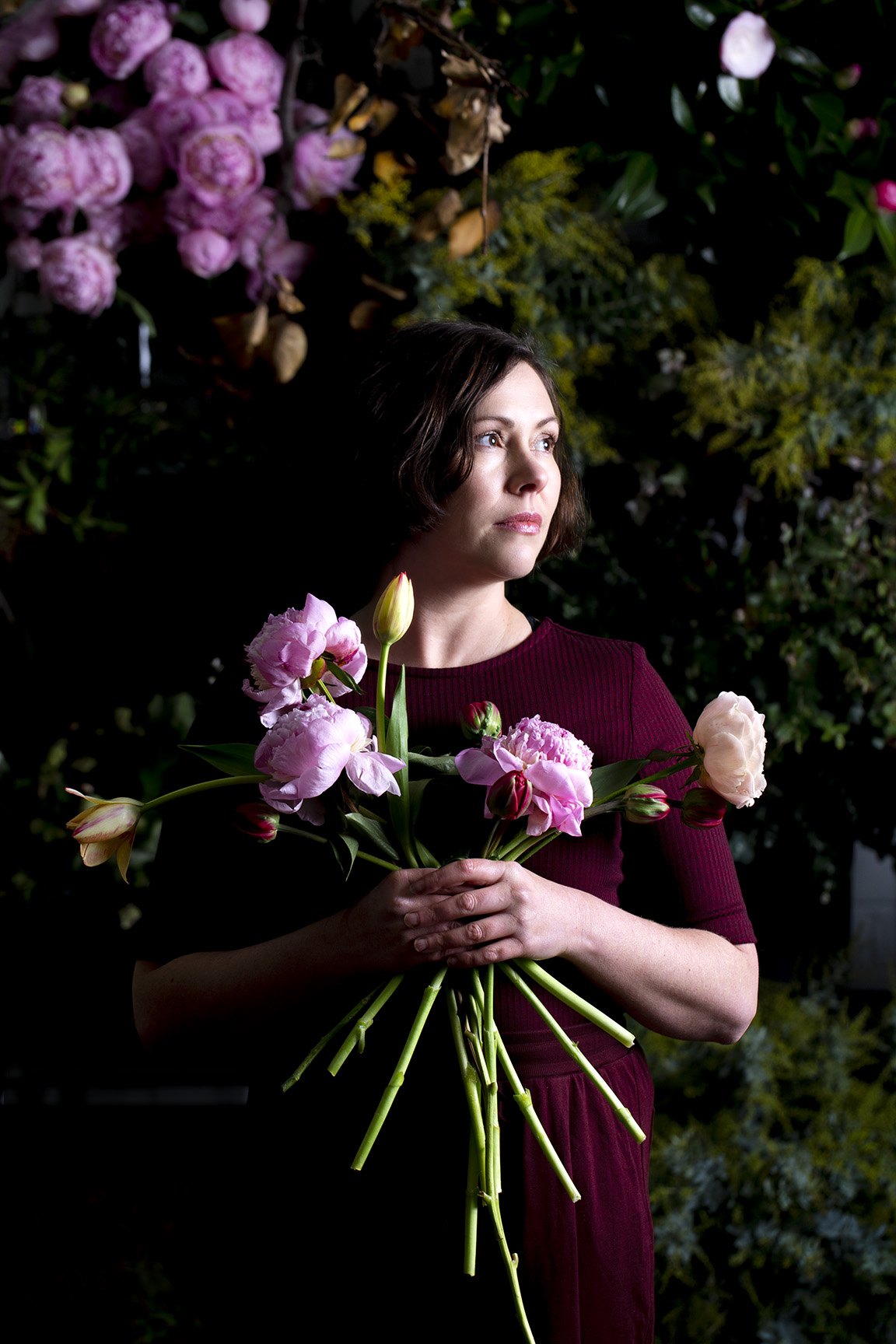
Image: Mia Mala McDonald
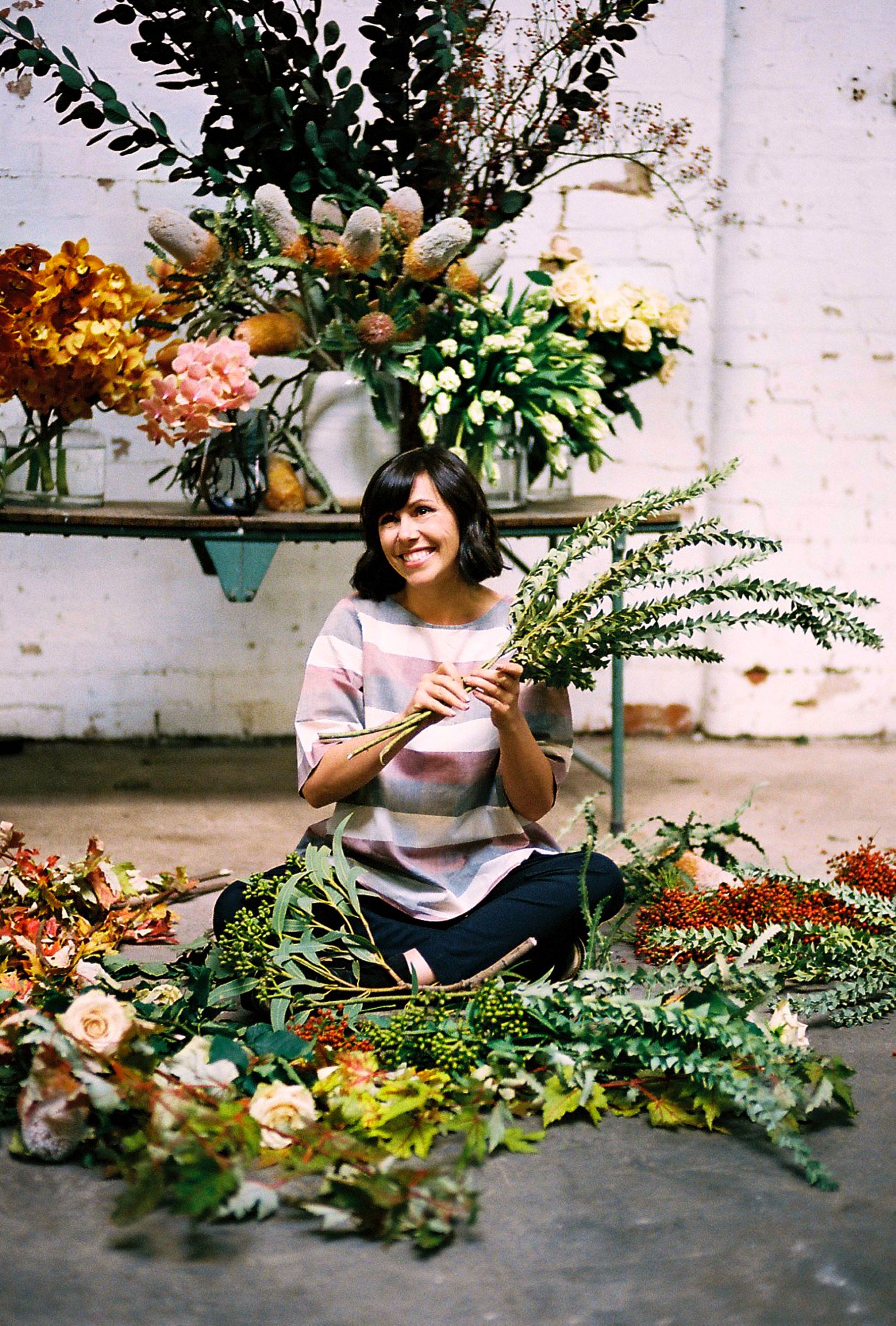
Image: Mia Mala McDonald
What have been your biggest work highlights to date?
I’ve had the opportunity to work with so many incredible people, on many wonderful projects and every collaboration has shaped and expanded my work in directions I never would have dreamed of. The work that I am the most proud of is work that I’ve created for myself. Our film Fools Rush In was a definite favourite, as well as Life Cycle by Alex Badham. Flowering Now a project that Katie Marx and I created together is also something I’m extremely proud of. I’m very excited about unearthing my new life in New Zealand and I think my best work is yet to come.
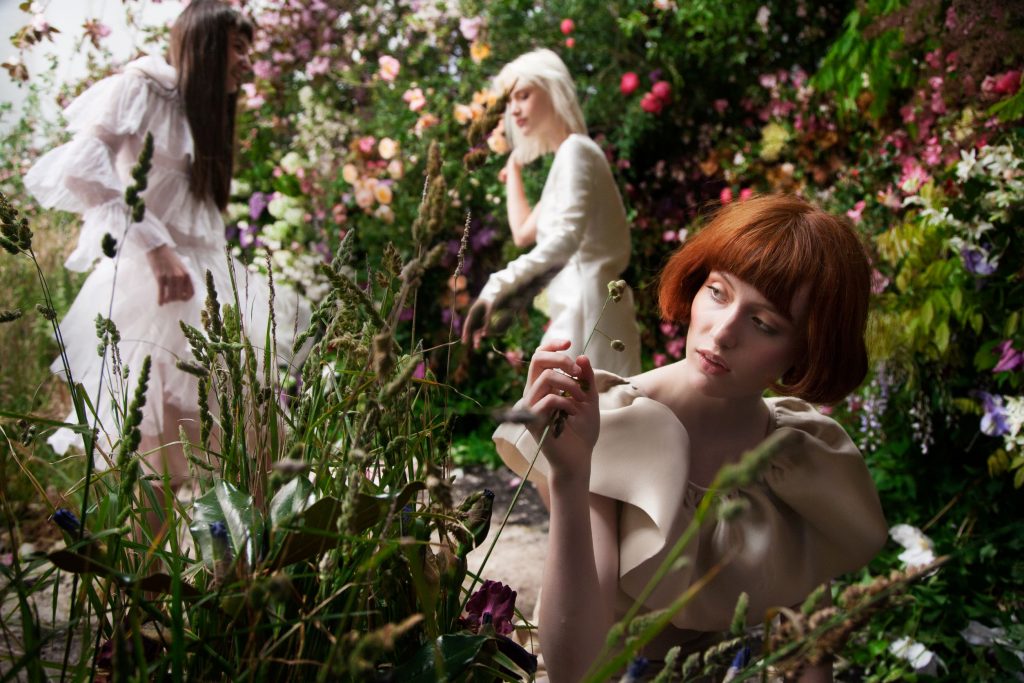
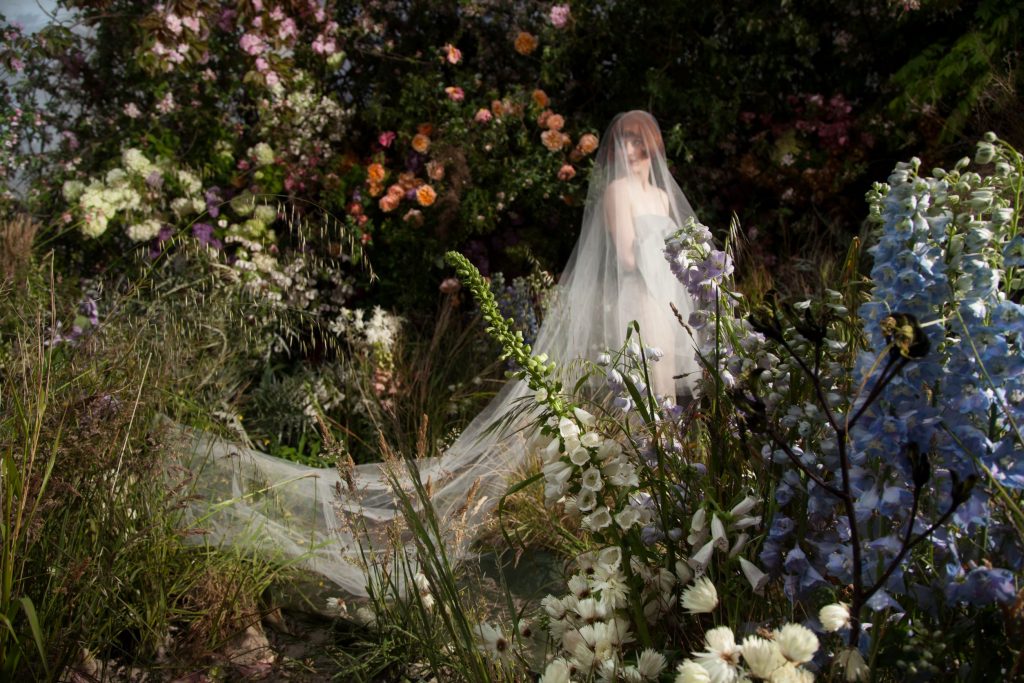
Social media has had a huge impact on floristry. Your thoughts?
Instagram is the main platform that I use and in the early years it was such an incredible tool for community and for getting your work out there. Things are different now and the rules of engagement change daily. I still love the sense of community among florists around the world; it’s a wonderful opportunity to lift up other florists and to be a vehicle for change.
What can discourage me are Instagram ‘florists’ who don’t rely on their floral businesses to make money. There are so many levels of privilege in being a florist — not least of all how hard you may need to work to make a living. I’m not in this industry for the money but I do need to make some to support my family. It is very easy to focus on sustainable design when you are not actually producing at scale, employing folk, working to time pressures, paying leases and running vehicles etc. There is absolutely nothing wrong with doing flowers from your spare room or your garage or simply for love, and I encourage everyone to find the joy of nature and flowers and beauty in whatever way they can. Arranging flowers for the joy is just as valid as arranging flowers for the joy AND the living wage, but it is important to acknowledge the distinction between the two.
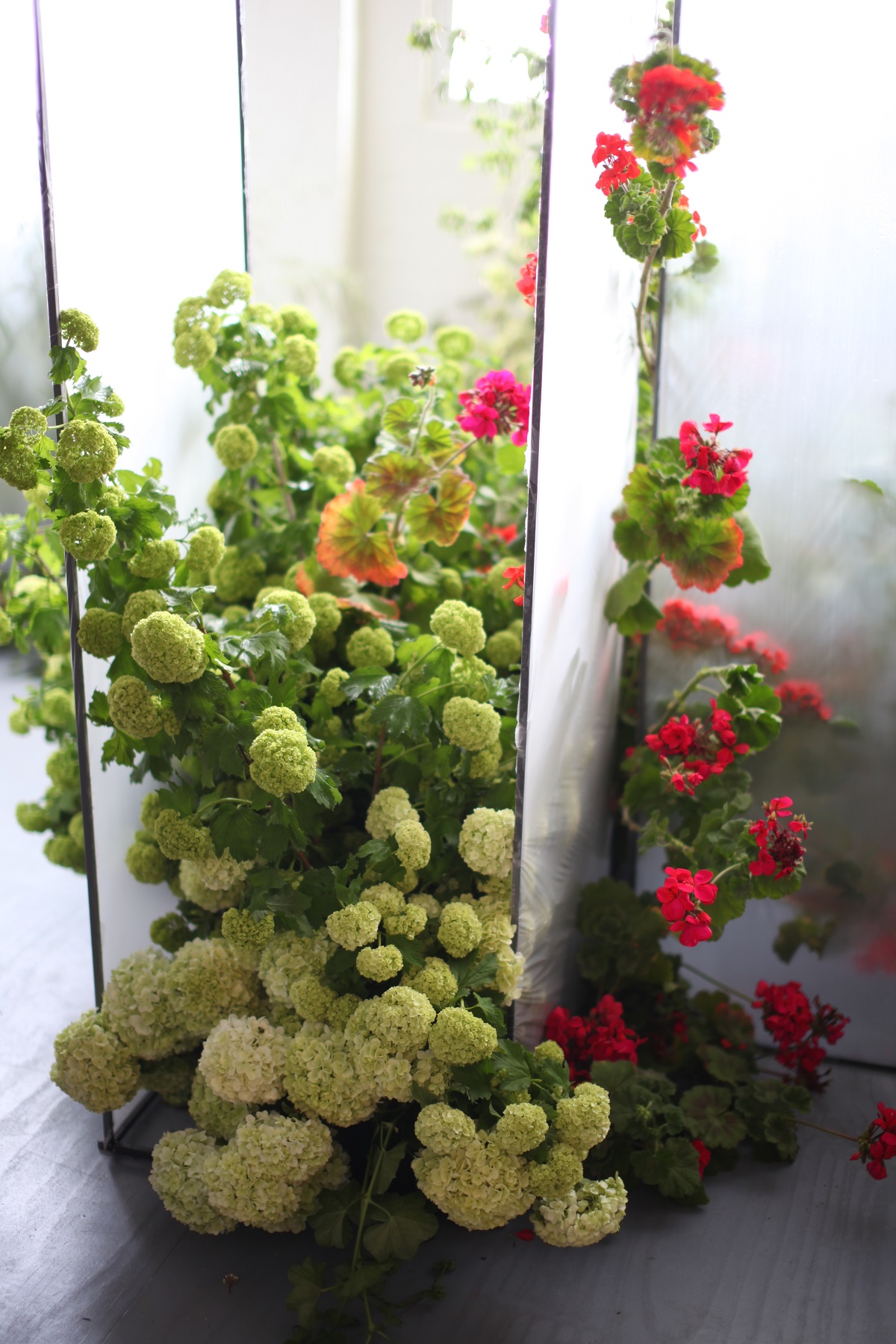
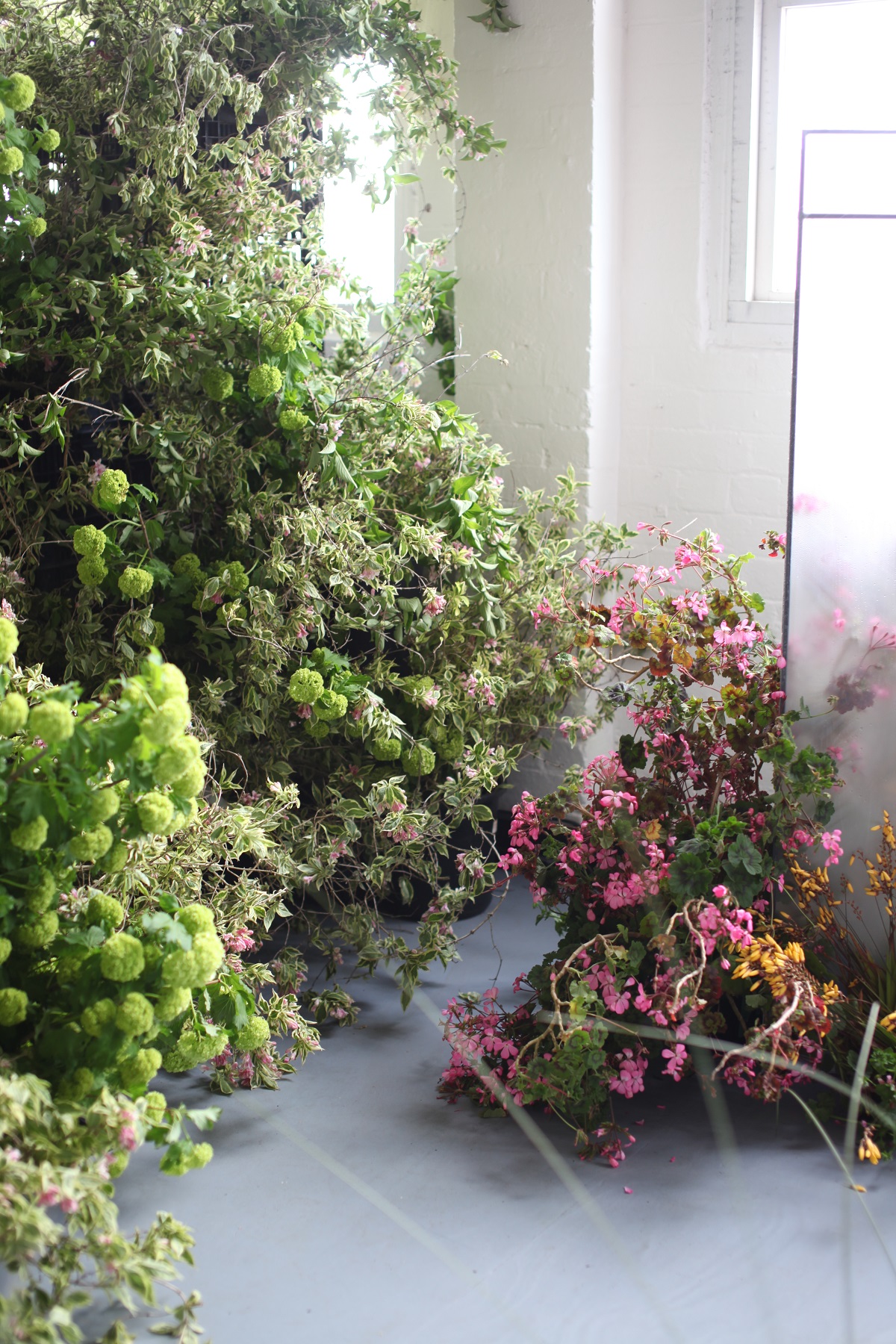
As an employer, what do you look for in employees when hiring?
For many years I hired almost exclusively art students as we shared a warehouse with an incredible group of young contemporary artists. To support our work I needed staff that were robust, flexible and motivated, with a good eye but less caught up in the traditional conventions of floristry. I still look for people to work with me that have those traits. A good eye, a love of materials, curiosity, stamina, positivity and a great work ethic.
I respect and am inspired by other florists who create and stay true to a style or look. In the ever-homogenous floristry realm, I love seeing originality and bravery in design.
The word ‘sustainability’ in floristry is getting a good run – what does it mean to you in relation to your business practice?
Sustainability is something that underpins everything in my business. Environmental sustainability is paramount and includes local sourcing, no foam, avoiding plastics, composting all green waste, reusing, recycling and investing in a new electric van! Economically, our business must sustain us in a way that it contributes to an industry that benefits future generations of florists. Socially, I’m fiercely aware of the relative unregulated nature of our labour practices throughout the whole flower industry. For me, creating a workplace that sustains and supports my staff and myself financially, emotionally and physically is the focus of my energy. It feels endlessly complex, so I try to keep it simple.
What attitudes do you think need to change for both florists and consumers with regards to sustainability principles?
It’s not just florists who need to keep these principles at the forefront of business practices. These ideas must be applied to every industry. Capitalist society functions because we put money before people and our planet, and it works best when we think that small incremental changes won’t make a difference. These ideas apply to the food chain, fashion world etc. The same questions apply: where did it come from? who paid for the environmental and social damage if the consumer and producer didn’t?
Massive changes must occur at all levels of industry. But where we can all start is right HERE. The most powerful thing you can do right now is be vocal about what you’re doing in your business right now to work on these things and ensure that these actions are guided by best practice and a genuine desire to contribute to the bigger picture. It doesn’t have to be perfect, small steps are still steps. People will be ready to hear and act in their own time. Shaming and vilifying folks is not the way to get them on your team. Educate by leading.
People working with and for Cecilia Fox are introduced to our sustainability ideas and policies from day one and every person who has come into or walked along side Cecilia Fox has brought new ways and new ideas to work towards a more sustainable business model.
